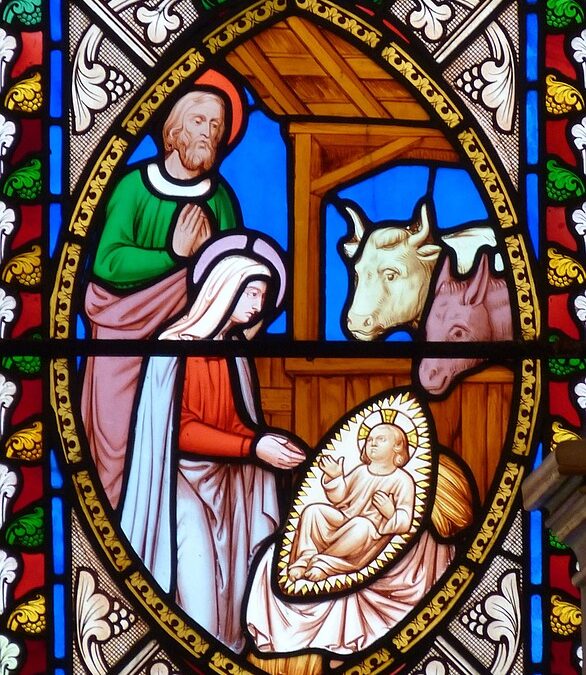
Dec 23, 2016 | Non categorizzato
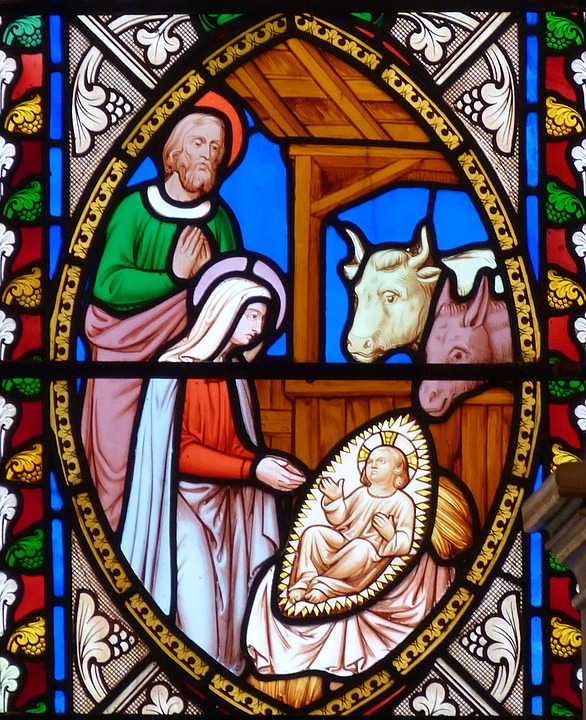 |
Christmas reminds us, along with the Scripture passage that we’ve chosen to live this month, that “He comes to save us” (Is 35:4). Save us from what? Among other things, our indifference towards those who suffer. My wish for you this Christmas is that we may all go beyond ourselves and welcome the other, all the others: those in need, those who have left their own lands because of hunger and war, those who are lonely, marginalized, imprisoned….. My wish for all of us is that after having experienced God’s love that saves us, we will reach out to save those around us. Happy Christmas everybody!
Maria Voce
|
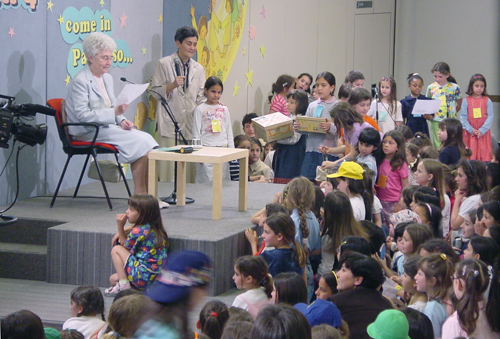
Dec 22, 2016 | Focolare Worldwide
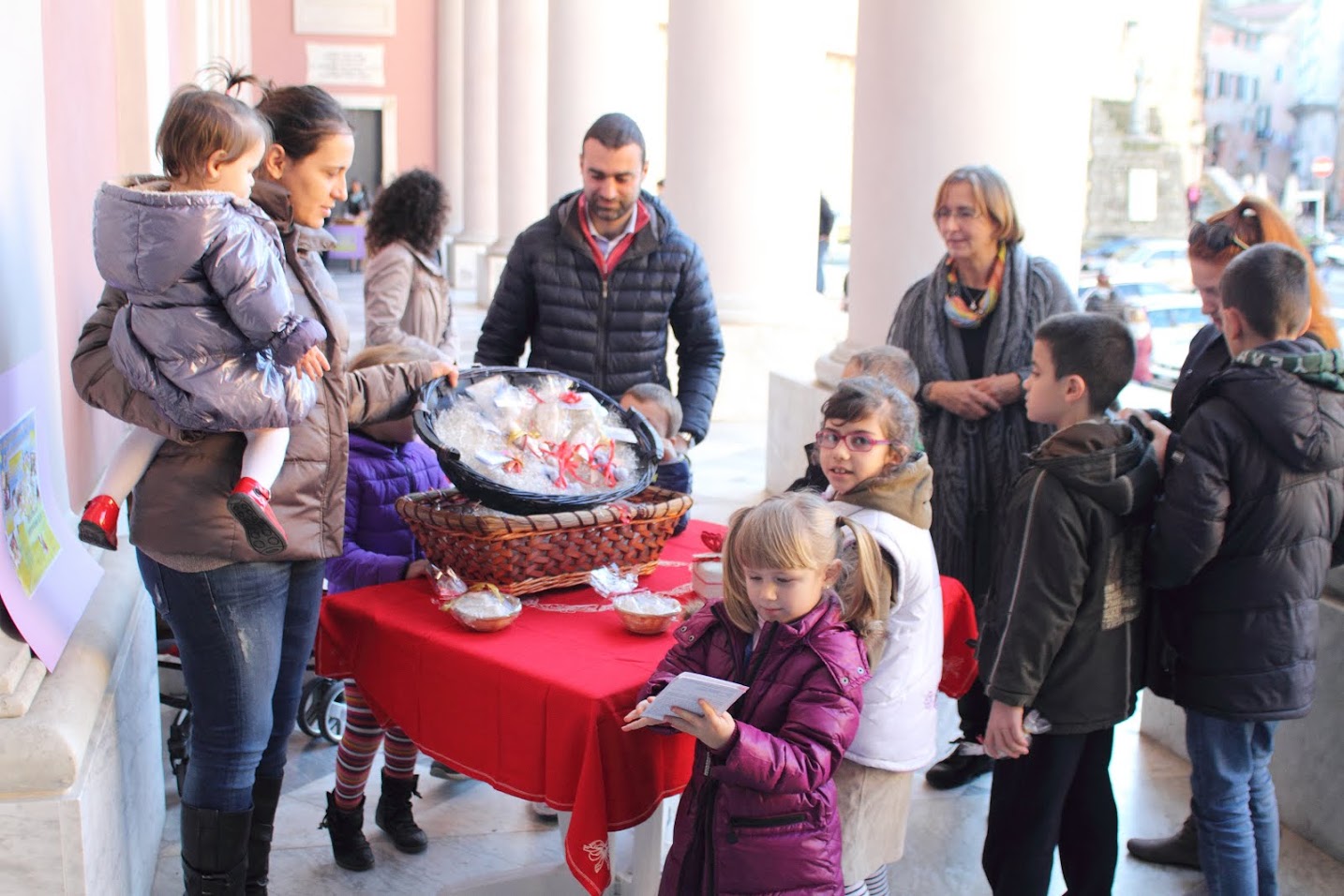 They are the Gen4, the children in the Focolare Movement, explain their idea of Christmas not only as a colourful celebration, filled with enchanting imaginary characters created by persuasive businesses and a frenetic race to sell and buy gifts: We should put Jesus back into the centre of Christmas, it’s his day,” they explain. The Gen4 made the small figurines of the Holy Child with much patience and love and then gave them away to passersby. They report from New York City: “While visiting the city with some friends, in the midst of the crowd, your small table drew my attention … Those words, “They’ve Evicted Jesus” resounded inside me! I’d like to transmit your message to others! This is has been my most beautiful Christmas, you’ve filled my heart with warmth.” Maria Helena Benjamin and Pep Cannoves who are responsible for the Gen4 worldwide, recounted how these little ones are particularly sensitive to evangelical love. They learn to concretize it in their daily actions, real factual gestures of fraternity. They discover that when love is mutual it brings the presence of Jesus among them. Thus they come to know Him and create simple and direct relationship with Him. They manage to involve their friends at school, their families, their parents and their teachers with their disarming simplicity, and they enter into the heart of each one of them.
They are the Gen4, the children in the Focolare Movement, explain their idea of Christmas not only as a colourful celebration, filled with enchanting imaginary characters created by persuasive businesses and a frenetic race to sell and buy gifts: We should put Jesus back into the centre of Christmas, it’s his day,” they explain. The Gen4 made the small figurines of the Holy Child with much patience and love and then gave them away to passersby. They report from New York City: “While visiting the city with some friends, in the midst of the crowd, your small table drew my attention … Those words, “They’ve Evicted Jesus” resounded inside me! I’d like to transmit your message to others! This is has been my most beautiful Christmas, you’ve filled my heart with warmth.” Maria Helena Benjamin and Pep Cannoves who are responsible for the Gen4 worldwide, recounted how these little ones are particularly sensitive to evangelical love. They learn to concretize it in their daily actions, real factual gestures of fraternity. They discover that when love is mutual it brings the presence of Jesus among them. Thus they come to know Him and create simple and direct relationship with Him. They manage to involve their friends at school, their families, their parents and their teachers with their disarming simplicity, and they enter into the heart of each one of them.  Pep Canoves recalled how Chiara Lubich deeply cherished these little ones, giving them a special place in her heart, going to visit them during their international congresses, sending messages to them, answering their questions. And it was to them that she extended the invitation to prevent Jesus from being banished from Christmas: “Let Jesus be born in your midst through your mutual love; then it was always be Christmas! […] We can offer Jesus, Jesus in our midst to the whole world. We can take this love of ours, Jesus in the midst, our joy, into the streets, into the schools, to young and old … anywhere!” The Gen4 also have their Advent Wreath activity. They fill the days before Christmas with many concrete acts of love that are appear simple, but in their smallness are quite revolutionary. The Gen4 are involved in many projects, especially for the most poor. “During the year,” Maria Helena Benjamin continues, “we receive lots of news from around the world about their projects for the marginalized, like the story of five year-old Sonia from Romania who became friends with a Roma girl that had just joined her class.” “We received news from Madagascar and from Indonesia. Also from Syria which these days is in so much trouble and at war… Pep recounts: “From Aleppo they even sent us photos: in these conflict situations we carry on living with them, continuing with them to believe in love.” Once, while answering to a question from one of the Gen4 boys, Chiara had given them a special assignment: “Do you know what real happiness is? It’s the happiness you have when you love. Try it! Whenever you love, you’re happy. If you love all the time, you’ll be happy all the time. What should you do in the world? Give happiness to people, teach everyone to love.” And they really do teach us, with their purity and simplicity, how to put evangelica love into practice, the secret to happiness. Patrizia Mazzola
Pep Canoves recalled how Chiara Lubich deeply cherished these little ones, giving them a special place in her heart, going to visit them during their international congresses, sending messages to them, answering their questions. And it was to them that she extended the invitation to prevent Jesus from being banished from Christmas: “Let Jesus be born in your midst through your mutual love; then it was always be Christmas! […] We can offer Jesus, Jesus in our midst to the whole world. We can take this love of ours, Jesus in the midst, our joy, into the streets, into the schools, to young and old … anywhere!” The Gen4 also have their Advent Wreath activity. They fill the days before Christmas with many concrete acts of love that are appear simple, but in their smallness are quite revolutionary. The Gen4 are involved in many projects, especially for the most poor. “During the year,” Maria Helena Benjamin continues, “we receive lots of news from around the world about their projects for the marginalized, like the story of five year-old Sonia from Romania who became friends with a Roma girl that had just joined her class.” “We received news from Madagascar and from Indonesia. Also from Syria which these days is in so much trouble and at war… Pep recounts: “From Aleppo they even sent us photos: in these conflict situations we carry on living with them, continuing with them to believe in love.” Once, while answering to a question from one of the Gen4 boys, Chiara had given them a special assignment: “Do you know what real happiness is? It’s the happiness you have when you love. Try it! Whenever you love, you’re happy. If you love all the time, you’ll be happy all the time. What should you do in the world? Give happiness to people, teach everyone to love.” And they really do teach us, with their purity and simplicity, how to put evangelica love into practice, the secret to happiness. Patrizia Mazzola
![The simplicity of Aletta]()
Dec 21, 2016 | Non categorizzato
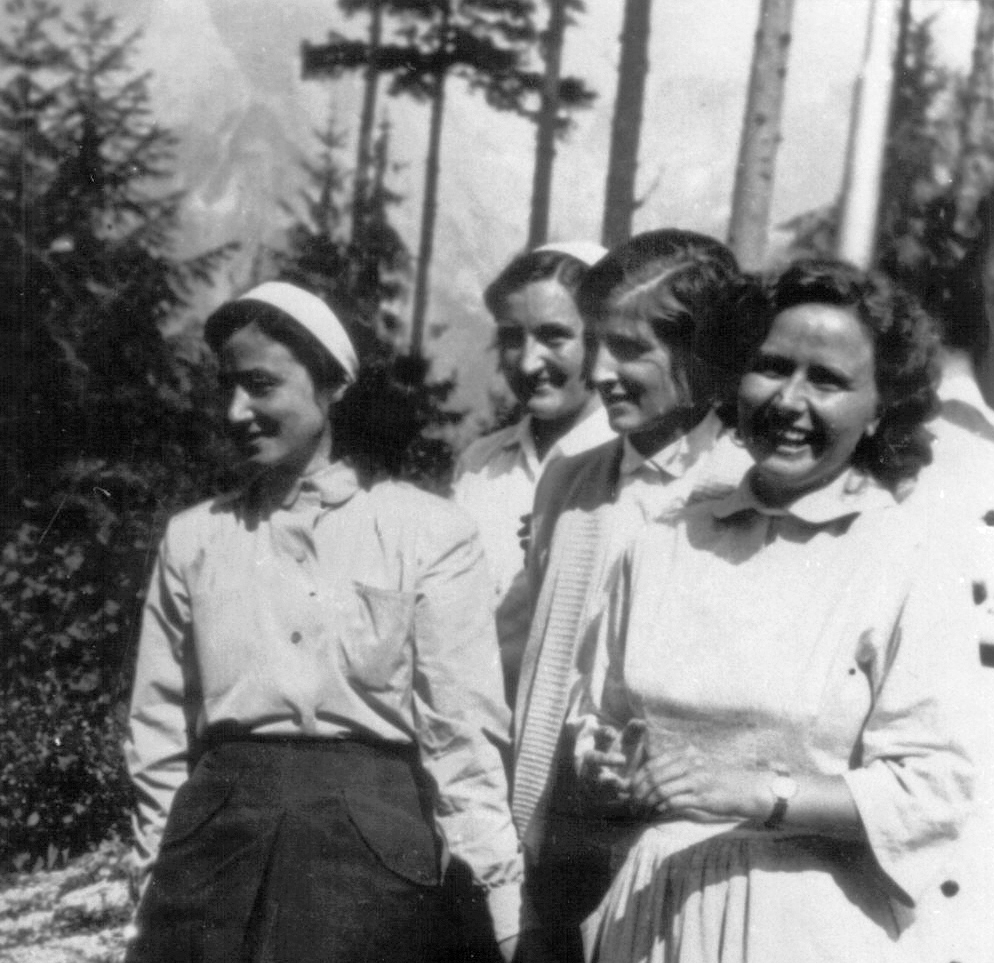 Born in Martignano (Trent) on 27 November 1924, Vittoria Salizzoni, who moved temporarily to France with her family, felt God’s call at the age of 13: an intuition which she tried momentarily to put aside. At the age of 21 she met Chiara Lubich and was attracted by the novelty of the life she lived. Her doubts dissolved immediately: the path through which she could respond to that “calling” she had felt ever since childhood, was the focolare. Aletta (“little wing,” the name that Chiara gave her to remind her of the winged flight she had to take without looking back) stood by Chiara for 20 years in the discovery and implementation of the features of the Charism the Holy Spirit was slowly revealing to them. Among these, besides the specific spirituality of unity which is its particular characterstic, were the main concrete aspects of Christian life. What specifically suited the figure of Aletta, was the concern for health and protection of the environment. Chiara herself had explained this aspect to her as: «the entire humanity of Jesus; the life of Jesus in each person. Jesus was born of a woman like us, suffered the cold and hunger, cried, and experienced human affection. He fed the hungry, multiplied the bread and fishes, and healed many sick people. But above all he was full of love for mankind, and his suffering… Suffering, death and the resurrection are also expressions of this aspect.» In the 1960s and 1970s Chiara asked her to open the focolare house in Istanbul, where Aletta would have many and profound contacts with Patriarch Athenagoras I. So on many occasions, she had the chance to accompany Chiara in her visits to the Patriarch. During her stay in those lands, Aletta discovered the beauty of the Orthodox Church and the Churches of the Orient, in which she saw the importance of translating truth in life, exalting love. The contacts she established were the precursor of a fertile dialogue that has continued up to today, with the current Ecumenical Patriarch, Bartholomew I.
Born in Martignano (Trent) on 27 November 1924, Vittoria Salizzoni, who moved temporarily to France with her family, felt God’s call at the age of 13: an intuition which she tried momentarily to put aside. At the age of 21 she met Chiara Lubich and was attracted by the novelty of the life she lived. Her doubts dissolved immediately: the path through which she could respond to that “calling” she had felt ever since childhood, was the focolare. Aletta (“little wing,” the name that Chiara gave her to remind her of the winged flight she had to take without looking back) stood by Chiara for 20 years in the discovery and implementation of the features of the Charism the Holy Spirit was slowly revealing to them. Among these, besides the specific spirituality of unity which is its particular characterstic, were the main concrete aspects of Christian life. What specifically suited the figure of Aletta, was the concern for health and protection of the environment. Chiara herself had explained this aspect to her as: «the entire humanity of Jesus; the life of Jesus in each person. Jesus was born of a woman like us, suffered the cold and hunger, cried, and experienced human affection. He fed the hungry, multiplied the bread and fishes, and healed many sick people. But above all he was full of love for mankind, and his suffering… Suffering, death and the resurrection are also expressions of this aspect.» In the 1960s and 1970s Chiara asked her to open the focolare house in Istanbul, where Aletta would have many and profound contacts with Patriarch Athenagoras I. So on many occasions, she had the chance to accompany Chiara in her visits to the Patriarch. During her stay in those lands, Aletta discovered the beauty of the Orthodox Church and the Churches of the Orient, in which she saw the importance of translating truth in life, exalting love. The contacts she established were the precursor of a fertile dialogue that has continued up to today, with the current Ecumenical Patriarch, Bartholomew I.  After the death of Athenagoras, Aletta moved to Lebanon. Those were years of civil war, which with the continuous air raids, repeated the lesson of the movement’s early years in Trent: “everything collapses, only God remains!” She shared with the local people the insecurity and risks of those long years of war, supporting, consoling, and imbuing hope. Difficulties and dangers did not hinder the spread of the charism of unity, not only in Lebanon but across the Middle East, which Aletta visited periodically. In 1990 she returned to Rome for good. «During those first years in Piazza Cappuccini – recounts Palmira, who is also from that first group of focolarine women of Trent – I would go with Aletta to the valleys to meet the first communities that were sprouting. She was like an angel, and it explains clearly why Chiara immediately called her so. And she was like the batter of an angel’s wing, for Chiara and for all of us throughout these 70 years of her life in the focolare. She didn’t talk much, but what she said put us all in the essential facts of life. What characterized her most was simplicity, an inborn serenity and enviable psycho-physical balance.» Ten days before her death, Aletta recorded a video message to the youths of the Movement, the gen, gathered for their congress: «I want to greet all the gen of the world on their 50th anniversary. May they all make progress; they are young, still strong, and can do all they wish!» Upon announcing the death of Aletta to the Movement worldwide, Maria Voce, the Focolare President wrote: «With joy and immense gratitude we are accompanying Aletta to the house of the Father. We could not have had a better model than her, who gave her life without measure.» By Anna Friso
After the death of Athenagoras, Aletta moved to Lebanon. Those were years of civil war, which with the continuous air raids, repeated the lesson of the movement’s early years in Trent: “everything collapses, only God remains!” She shared with the local people the insecurity and risks of those long years of war, supporting, consoling, and imbuing hope. Difficulties and dangers did not hinder the spread of the charism of unity, not only in Lebanon but across the Middle East, which Aletta visited periodically. In 1990 she returned to Rome for good. «During those first years in Piazza Cappuccini – recounts Palmira, who is also from that first group of focolarine women of Trent – I would go with Aletta to the valleys to meet the first communities that were sprouting. She was like an angel, and it explains clearly why Chiara immediately called her so. And she was like the batter of an angel’s wing, for Chiara and for all of us throughout these 70 years of her life in the focolare. She didn’t talk much, but what she said put us all in the essential facts of life. What characterized her most was simplicity, an inborn serenity and enviable psycho-physical balance.» Ten days before her death, Aletta recorded a video message to the youths of the Movement, the gen, gathered for their congress: «I want to greet all the gen of the world on their 50th anniversary. May they all make progress; they are young, still strong, and can do all they wish!» Upon announcing the death of Aletta to the Movement worldwide, Maria Voce, the Focolare President wrote: «With joy and immense gratitude we are accompanying Aletta to the house of the Father. We could not have had a better model than her, who gave her life without measure.» By Anna Friso
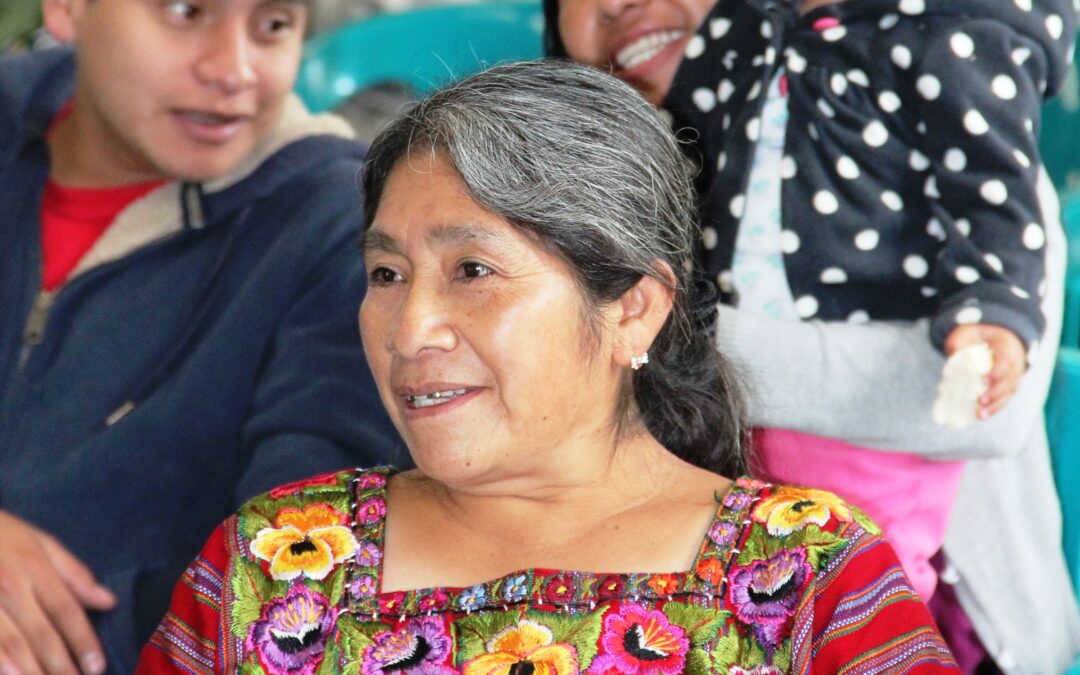
Dec 20, 2016 | Non categorizzato
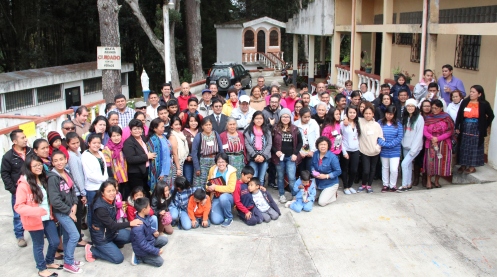 «We visited the families with the Word of Life leaflet and while talking about one thing and the other, a meeting ensued.» These were the words of Carmen, who with her husband, Mynor and their nearest of kin, initiated the holding of the Mariapolis close to their city, Chimaltenango, 54 km from Guatemala City. Based on commerce and agriculture, the city’s economy is integrated with the modern rhythms of production and consumption, but still jealously guards their ancient culture and traditions. Carmen and Mynor are the heart of the Focolare community and their big house is the local base of the Movement. With a twinge of pride they told us about the meetings they hold there. Information about the Movement was barely disseminated, so the first thing they did was to inform the parish priest, who Mynor, Carmen, and her sister, Marta went to visit. But priests in these areas are very busy, and since Mynor could not wait for long, he went to his work in Court. «The priest could not understand what novelties the Movement could bring – Carmen continued – until my sister Marta told him about the experiences of her children who are gen3». The first had allocated the money she received on her 15th birthday to the poor children of an isolated village; the other had forgiven a school mate who had tripped him and caused him to consequently break an arm. At that point the parish priest understood the effects of living the Focolare spirituality. Once they received the support of the local church, they had to cover the expenses. «When people are invited to a retreat – Mynor said – they know they will be hosted as guests». Because of this the preparation for the Mariapolis also consisted in fundraising activities, one of which was holding Bingo sessions in the parish hall, and gathering gifts for the occasion.
«We visited the families with the Word of Life leaflet and while talking about one thing and the other, a meeting ensued.» These were the words of Carmen, who with her husband, Mynor and their nearest of kin, initiated the holding of the Mariapolis close to their city, Chimaltenango, 54 km from Guatemala City. Based on commerce and agriculture, the city’s economy is integrated with the modern rhythms of production and consumption, but still jealously guards their ancient culture and traditions. Carmen and Mynor are the heart of the Focolare community and their big house is the local base of the Movement. With a twinge of pride they told us about the meetings they hold there. Information about the Movement was barely disseminated, so the first thing they did was to inform the parish priest, who Mynor, Carmen, and her sister, Marta went to visit. But priests in these areas are very busy, and since Mynor could not wait for long, he went to his work in Court. «The priest could not understand what novelties the Movement could bring – Carmen continued – until my sister Marta told him about the experiences of her children who are gen3». The first had allocated the money she received on her 15th birthday to the poor children of an isolated village; the other had forgiven a school mate who had tripped him and caused him to consequently break an arm. At that point the parish priest understood the effects of living the Focolare spirituality. Once they received the support of the local church, they had to cover the expenses. «When people are invited to a retreat – Mynor said – they know they will be hosted as guests». Because of this the preparation for the Mariapolis also consisted in fundraising activities, one of which was holding Bingo sessions in the parish hall, and gathering gifts for the occasion. 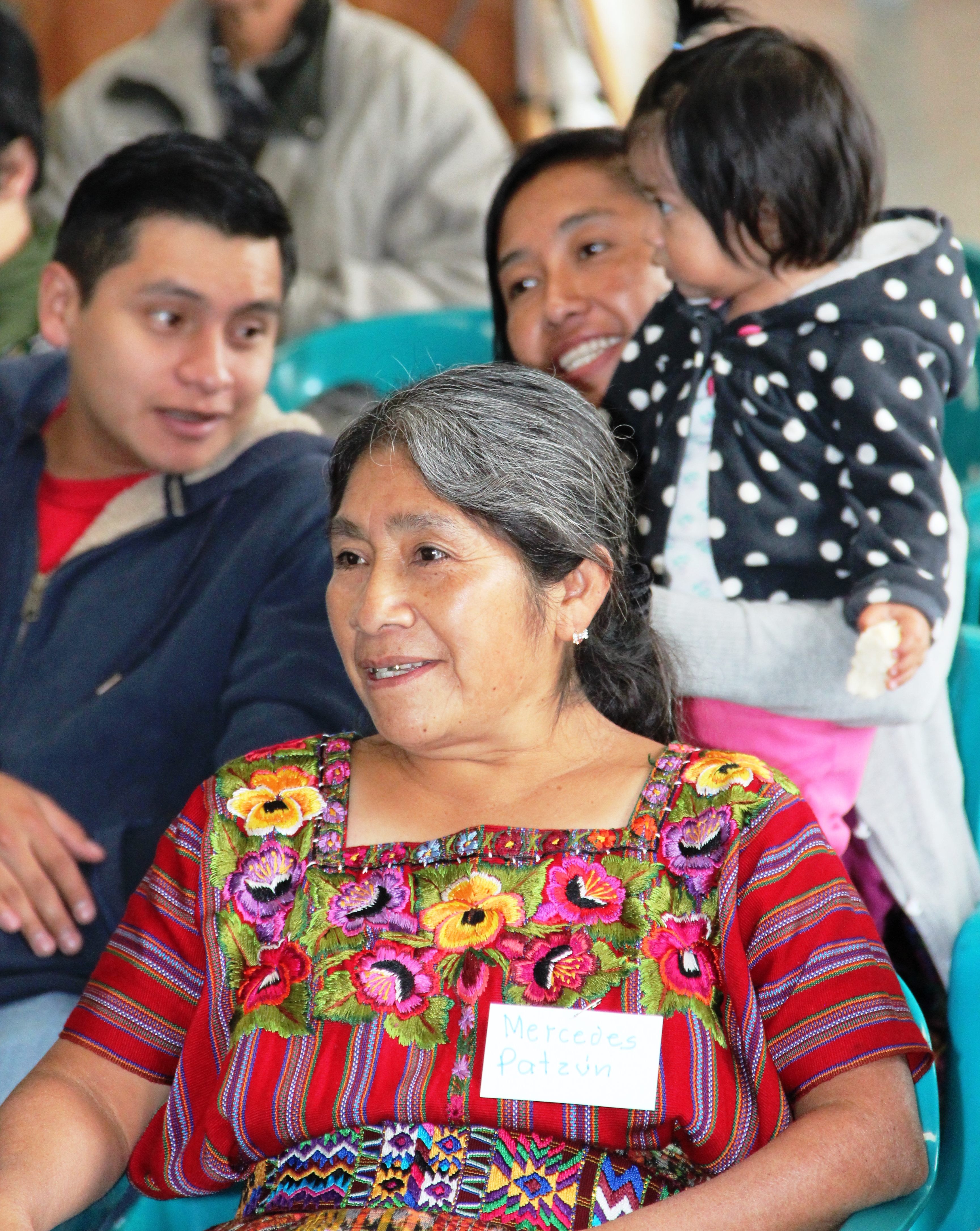 Kelly, the second of Carmen and Mynor’s four children, is studying law to follow in her father’s footsteps. «There are only a few of us in the faculty – she affirmed – but we help each other. Only two of us are gen but we always try to have Jesus in our midst and with everyone». Kelly admires the coherent life of her parents: «When they invited people to the Mariapolis, they spoke about experiences I know, and which were all true. In our home, the Word of Life is the reference for every situation. And so, when there is a problem we read it in order to put it into practice.» Respect for the elderly is one of the riches of the Kaqchikel. In their presence, a gesture of reverence is shown before speaking. Motherhood and the gift of children are considered a benediction of God and are foremost in value compared to all considerations. «For me, the Movement – again Carmen says – is a grace of God that welcomes us, adults and children, and likewise the various cultures and languages. Here, they appreciate us, with our traditions and mentality.» In the culture of the Maya there is a strong bond with nature. «We invoke it, giving thanks to the heart of the heavens and the heart of the earth, and like St. Francis, we say: all are my brothers. Also Chiara Lubich had this vision. The Holy Spirit inspired her in this sense, which is why the Focolare Movement welcomes us as we are.» Mynor concludes: «The Maya philosophy stresses harmony, balance of the material and spiritual aspects, and solidarity which is equal to fraternity, to nurture conditions of cooperation.» Beyond all the contradictions that reign in every culture, the Kaqchikel conserve many human values which, enlightened and purified by the Gospel, enrich all those who receive it. Filippo Casabianca, Guatemala City
Kelly, the second of Carmen and Mynor’s four children, is studying law to follow in her father’s footsteps. «There are only a few of us in the faculty – she affirmed – but we help each other. Only two of us are gen but we always try to have Jesus in our midst and with everyone». Kelly admires the coherent life of her parents: «When they invited people to the Mariapolis, they spoke about experiences I know, and which were all true. In our home, the Word of Life is the reference for every situation. And so, when there is a problem we read it in order to put it into practice.» Respect for the elderly is one of the riches of the Kaqchikel. In their presence, a gesture of reverence is shown before speaking. Motherhood and the gift of children are considered a benediction of God and are foremost in value compared to all considerations. «For me, the Movement – again Carmen says – is a grace of God that welcomes us, adults and children, and likewise the various cultures and languages. Here, they appreciate us, with our traditions and mentality.» In the culture of the Maya there is a strong bond with nature. «We invoke it, giving thanks to the heart of the heavens and the heart of the earth, and like St. Francis, we say: all are my brothers. Also Chiara Lubich had this vision. The Holy Spirit inspired her in this sense, which is why the Focolare Movement welcomes us as we are.» Mynor concludes: «The Maya philosophy stresses harmony, balance of the material and spiritual aspects, and solidarity which is equal to fraternity, to nurture conditions of cooperation.» Beyond all the contradictions that reign in every culture, the Kaqchikel conserve many human values which, enlightened and purified by the Gospel, enrich all those who receive it. Filippo Casabianca, Guatemala City
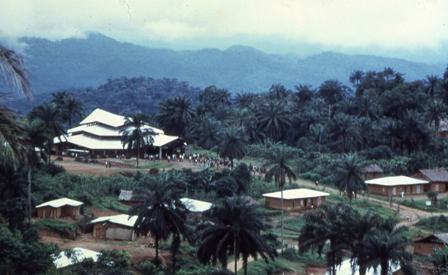
Dec 19, 2016 | Focolare Worldwide
 “I was asked to present a report on the Christian witness in front of African tradition. It wasn’t easy for me, for two simple reasons: the first is that I am a Bangwa, the second is that I’m not only Christian, but also the bishop of Mamfe.” The speaker is Bishop Andrew Fuanya Nkea at a symposium on dalogue between traditional African religions and Christianity, during the 50th anniversary celebration of the Focolare Movement in Fontem. Fifty-one years old, he is originally from Widikum, Cameroon, graduate in Philosophy and Theology, a priest since 1992, pastor, secretary of the Diocese, professor and formator, Secretary General of the Catholic University of Cameroon and recently named Bishop of the diocese of Mamfe. “I decided to use a more practical than theoretical approach in my talk,” said the bishop who then proceeded to recount the history of the relationship between the Bangwa culture – especially in the south west region of Cameroon, the Lebialem District – and Christianity. That relationship was marked by an encounter that turned into a sort of parting of the waters between a before and an after: the encounter with the Focolare Movement. Bishop Andrew Fuanya is a living demonstration that it is possible to overcome the dualism between two traditions, without falling into religous syncretism. The Christianity brought by the first missionaries who arrived in Cameroon in the 1920s had placed the population in front of a fork in the road: “Either you become Christian and avoid all aspects of the traditional religions, or you practice the Bangwa religion, remaining a pagan, good only as firewood for hell.” There was little or no dialogue between Christianity and the local culture. Typical musical instruments were banned in church, along with traditional prayers. In spite of the rigidity and inflexible methods used by the first missionaries, many people embraced Christianity, even though it was very difficult and in direct opposition to their communities.
“I was asked to present a report on the Christian witness in front of African tradition. It wasn’t easy for me, for two simple reasons: the first is that I am a Bangwa, the second is that I’m not only Christian, but also the bishop of Mamfe.” The speaker is Bishop Andrew Fuanya Nkea at a symposium on dalogue between traditional African religions and Christianity, during the 50th anniversary celebration of the Focolare Movement in Fontem. Fifty-one years old, he is originally from Widikum, Cameroon, graduate in Philosophy and Theology, a priest since 1992, pastor, secretary of the Diocese, professor and formator, Secretary General of the Catholic University of Cameroon and recently named Bishop of the diocese of Mamfe. “I decided to use a more practical than theoretical approach in my talk,” said the bishop who then proceeded to recount the history of the relationship between the Bangwa culture – especially in the south west region of Cameroon, the Lebialem District – and Christianity. That relationship was marked by an encounter that turned into a sort of parting of the waters between a before and an after: the encounter with the Focolare Movement. Bishop Andrew Fuanya is a living demonstration that it is possible to overcome the dualism between two traditions, without falling into religous syncretism. The Christianity brought by the first missionaries who arrived in Cameroon in the 1920s had placed the population in front of a fork in the road: “Either you become Christian and avoid all aspects of the traditional religions, or you practice the Bangwa religion, remaining a pagan, good only as firewood for hell.” There was little or no dialogue between Christianity and the local culture. Typical musical instruments were banned in church, along with traditional prayers. In spite of the rigidity and inflexible methods used by the first missionaries, many people embraced Christianity, even though it was very difficult and in direct opposition to their communities.  The novelty represented by the first visit of Chiara Lubich to the royal palace of the Fon of Fontem in 1966 can be described with an image used by the Focolare foundress in describing the first spark, the first inspiration of the interreligious dialogue that would later develop: “Suddenly I had the strong impression of God as an enormous sun that embraced everybody with His love – us and them.” A new era had begun, driven on the wind of the Second Vatican Council and by the extraordinary story of the friendship among the first focolarini to reach the spot and the Bangwa people. The focolarini included doctors who had come to wipe out the sleeping sickness that was decimating the population. Since then, the relationship between the faithful of the two religions have been characterized by deep mutual respect which restored dignity to the traditional culture and was a veritable laboratory in which the identity of both religions could grow. The bishop explains: some local religious traditions were kept, such as praying to the dead, so that they might intercede for the family, or the Cry Die, the day dedicated to them; other things were strange to their new faith, such as polygamy, animal sacrifice and witchcraft. The new inculturation, concluded the bishop, according to the spirit of the Second Vatican Council, does not come from an imposition of a rigid uniformity, but is inspired by the values of dialogue and collaboration, in the search for the ‘Seeds of the Word’ that are scattered in every religious tradition. “The challenge for the Christians of Lebialem for the next 50 years will be to recognize that their credibility will depend on how much they are able to love everybody, independant of the religion they belong to.” Only in this way will they be authentic Christians and authentic Africans.” Chiara Favotti Full interview with Mons. Andrew F. Nkea
The novelty represented by the first visit of Chiara Lubich to the royal palace of the Fon of Fontem in 1966 can be described with an image used by the Focolare foundress in describing the first spark, the first inspiration of the interreligious dialogue that would later develop: “Suddenly I had the strong impression of God as an enormous sun that embraced everybody with His love – us and them.” A new era had begun, driven on the wind of the Second Vatican Council and by the extraordinary story of the friendship among the first focolarini to reach the spot and the Bangwa people. The focolarini included doctors who had come to wipe out the sleeping sickness that was decimating the population. Since then, the relationship between the faithful of the two religions have been characterized by deep mutual respect which restored dignity to the traditional culture and was a veritable laboratory in which the identity of both religions could grow. The bishop explains: some local religious traditions were kept, such as praying to the dead, so that they might intercede for the family, or the Cry Die, the day dedicated to them; other things were strange to their new faith, such as polygamy, animal sacrifice and witchcraft. The new inculturation, concluded the bishop, according to the spirit of the Second Vatican Council, does not come from an imposition of a rigid uniformity, but is inspired by the values of dialogue and collaboration, in the search for the ‘Seeds of the Word’ that are scattered in every religious tradition. “The challenge for the Christians of Lebialem for the next 50 years will be to recognize that their credibility will depend on how much they are able to love everybody, independant of the religion they belong to.” Only in this way will they be authentic Christians and authentic Africans.” Chiara Favotti Full interview with Mons. Andrew F. Nkea
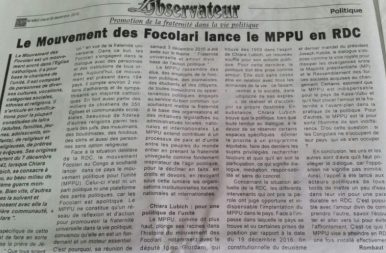
Dec 18, 2016 | Focolare Worldwide
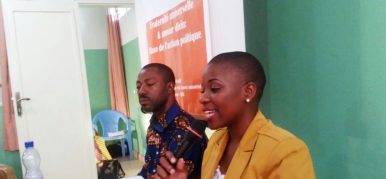 The Democratic Republic of the Congo (DRC) has been passing through a very delicate phase in its politics since last November 14th when the Premier Augustin Matata Ponyo was dismissed, following an accord in October that prolonged the mandate of President Joseph Kabila. Kabila should have terminated his office last December 19th, but his coalition, along with part of the opposition, has decided to continue on until next elections in April 2018. This was the heated context in which the Congolese Political Movement for Unity (PMU), which is inspired by the values of the spirituality of Chiara Lubich, was formed last October 29th. “During this period, the Church and its Bishops Conference is working to avoid chaos in the country,” say Damien Kasereka and Aga Ghislaine Kahambu from the local Focolare Movement. “The launching of the PMU at this moment is really an answer to a need. We’re glad to see members of the Movement more involved in politics, especially the young people who are convinced that things can be different. In spite of everything, we don’t lost hope.” On December 3rd the PMU was officially introduced at the multi-purpose meeting hall of the Moyi Mwa Ntongo Medical Centre in Kinshasa. The Le potentiel newspaper devoted a long article to the event, titled “Love and Brotherhood in Society: the Launch of a Mass-Awareness Movement”. “Far from being a political party, the PMU is a network of reflection and action for the promotion of brotherhood in the political life of the Congo. Its initiators are convinced that universal brotherhood is the basis and the key for positive change in society, especially Congolese [society] whose anti-values are finding it hard to die out,” the newspaper wrote. The event was attended by university researchers, teaching staff, journalists, religious, medical doctors, graduate students, social activists and other professionals. The meeting underscored the importance and opportunity being offered by the PMU in the DRC, since it promotes “doing politics in favour of unity” which is so needed at this difficult moment in time. The National Deputy Dieudonné Upira, one of the initiators of the PMU in the DRC, affirmed: “We’d like to raise a generation of young people who are not afraid like us. Obviously, we have not done much for this country. Perhaps we weren’t trained and this is the reason behind our fear. Therefore, we want to train the young people who are interested in doing good, so that they will be prepared to denounce, announce and renounce. Young people who, in front of the bipolarization of the Congolese political sphere, are able to say: “We must work for our nation.” A young person with training can influence society with his or her way of acting.”
The Democratic Republic of the Congo (DRC) has been passing through a very delicate phase in its politics since last November 14th when the Premier Augustin Matata Ponyo was dismissed, following an accord in October that prolonged the mandate of President Joseph Kabila. Kabila should have terminated his office last December 19th, but his coalition, along with part of the opposition, has decided to continue on until next elections in April 2018. This was the heated context in which the Congolese Political Movement for Unity (PMU), which is inspired by the values of the spirituality of Chiara Lubich, was formed last October 29th. “During this period, the Church and its Bishops Conference is working to avoid chaos in the country,” say Damien Kasereka and Aga Ghislaine Kahambu from the local Focolare Movement. “The launching of the PMU at this moment is really an answer to a need. We’re glad to see members of the Movement more involved in politics, especially the young people who are convinced that things can be different. In spite of everything, we don’t lost hope.” On December 3rd the PMU was officially introduced at the multi-purpose meeting hall of the Moyi Mwa Ntongo Medical Centre in Kinshasa. The Le potentiel newspaper devoted a long article to the event, titled “Love and Brotherhood in Society: the Launch of a Mass-Awareness Movement”. “Far from being a political party, the PMU is a network of reflection and action for the promotion of brotherhood in the political life of the Congo. Its initiators are convinced that universal brotherhood is the basis and the key for positive change in society, especially Congolese [society] whose anti-values are finding it hard to die out,” the newspaper wrote. The event was attended by university researchers, teaching staff, journalists, religious, medical doctors, graduate students, social activists and other professionals. The meeting underscored the importance and opportunity being offered by the PMU in the DRC, since it promotes “doing politics in favour of unity” which is so needed at this difficult moment in time. The National Deputy Dieudonné Upira, one of the initiators of the PMU in the DRC, affirmed: “We’d like to raise a generation of young people who are not afraid like us. Obviously, we have not done much for this country. Perhaps we weren’t trained and this is the reason behind our fear. Therefore, we want to train the young people who are interested in doing good, so that they will be prepared to denounce, announce and renounce. Young people who, in front of the bipolarization of the Congolese political sphere, are able to say: “We must work for our nation.” A young person with training can influence society with his or her way of acting.”  Ex-Deputy Georgine Madiko, who was among the initiators, also said: “We’ll begin periodic university courses that will allow young people to receive training through modules. [Then,] we’ll spread like a spider web covering the whole country and all the academic fields. This spider web will serve – if not in eradicating – at least in mitigating the wrong in our society and in promoting the good.” It will begin with a group of 59 people. At the conclusion, Aga Ghislaine Kahambu thanked everyone: “Your presence shows that you want our country to change. You don’t need a crowd to change society. Each one of us can perform positive actions. Now, we no longer want these actions to be isolated.” Gustavo Clariá
Ex-Deputy Georgine Madiko, who was among the initiators, also said: “We’ll begin periodic university courses that will allow young people to receive training through modules. [Then,] we’ll spread like a spider web covering the whole country and all the academic fields. This spider web will serve – if not in eradicating – at least in mitigating the wrong in our society and in promoting the good.” It will begin with a group of 59 people. At the conclusion, Aga Ghislaine Kahambu thanked everyone: “Your presence shows that you want our country to change. You don’t need a crowd to change society. Each one of us can perform positive actions. Now, we no longer want these actions to be isolated.” Gustavo Clariá
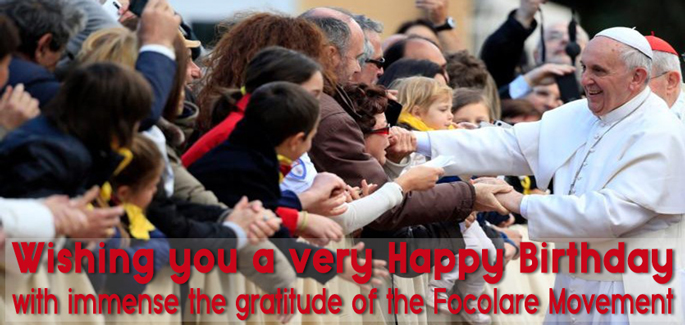
Dec 17, 2016 | Non categorizzato
 Use the social network to send your birthday greetings to Pope Francis:
Use the social network to send your birthday greetings to Pope Francis: Twitter: @pontifex Instagram: franciscus Ha*htag #Pontifex80
Dec 17, 2016 | Focolare Worldwide

Dec 16, 2016 | Focolare Worldwide
Sonia is from Slovacchia; she’s five and goes to nursery school. One day she told her mom that she had found a friend in school. “And what’s her name?” “I don’t know, she doesn’t speak. I approached her since I saw she was always alone and nobody wanted to play with her.” Sonia’s mom usually fetches her for lunch. But the teacher said: “Let her stay! She helps us with a gypsy girl who at first did not speak at all and now, thanks to her, has started to talk and cooperate with the others.” When she returned home her mother asked: “Did your friend say something to you?” “No, but she smiles when I tell her I like her.” Her mother remained silent. And the child said: “You know, love warms up each one of us.” 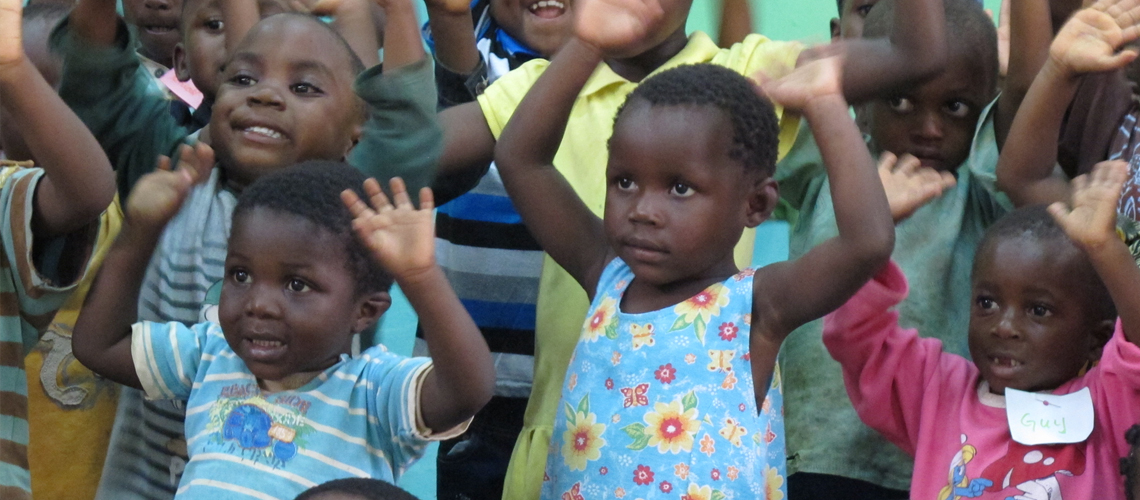 From Cameroon Kevin wrote: «One day in school during the break I asked one of my schoolmates if he had anything to eat. I was hungry and had nothing. He refused. The day after, I brought a piece of bread and when he came to ask me, I in turn refused. The next day, upon throwing the love dice it said: “Love your enemies.” I thought of that classmate. In school I tried to speak to him but he didn’t answer. So I sat in front of the house, waiting for him and when he came by, I called out to him, went up to him and when I asked why I shouldn’t speak to him anymore, he answered: “You refused to share with me the bread you had.” I immediately said, “Let’s make up!”and handed him some guava fruit I had with me. And so we started to talk and became friends again.»
From Cameroon Kevin wrote: «One day in school during the break I asked one of my schoolmates if he had anything to eat. I was hungry and had nothing. He refused. The day after, I brought a piece of bread and when he came to ask me, I in turn refused. The next day, upon throwing the love dice it said: “Love your enemies.” I thought of that classmate. In school I tried to speak to him but he didn’t answer. So I sat in front of the house, waiting for him and when he came by, I called out to him, went up to him and when I asked why I shouldn’t speak to him anymore, he answered: “You refused to share with me the bread you had.” I immediately said, “Let’s make up!”and handed him some guava fruit I had with me. And so we started to talk and became friends again.»  From Italy, Marco recounts: «One day at the nursery, the children made fun of me because I’m fat. I was sorry they did that and sometimes I cried. So I went to the Nun and instead of accusing them I told her of my sufferings. I understood that I had to forgive them and did so, because a Gen4 is one who, like Jesus, forgives and loves all.» Carmen lives in a slum at the outskirts of Mexico City. Often in the evening her uncles returns home drunk. Carmen is scared and hides herself. «But the other evening I didn’t hide – she says – I waited for him and helped him enter. I wasn’t scared because I knew that Our Lady takes care of me.» E Bartek, from Poland: «At the children’s party I received a gift from Teacher Ela, a chocolate bar and a lollipop. In my class there a girl called Asia, whom nobody likes. I remembered that in the morning upon throwing the dice, it said: “Love your enemies” and so I gave Asia the lollipop and half of the chocolate. She was surprised and thanked me, and then left. Now we have become big friends.» «In the centre of Naples (Italy), the “Baby Jesus” we make and offer to people is really selling quickly and many gather around the stand if only to say that they wish to join the initiative. A teacher, an agnostic, who has many problems, held Baby Jesus in her hands and looked at it: “This will be my Christmas!” A child ran home, emptied out his piggy bank and came with all his coins to buy his own Baby Jesus.» By the Gen4 Centres
From Italy, Marco recounts: «One day at the nursery, the children made fun of me because I’m fat. I was sorry they did that and sometimes I cried. So I went to the Nun and instead of accusing them I told her of my sufferings. I understood that I had to forgive them and did so, because a Gen4 is one who, like Jesus, forgives and loves all.» Carmen lives in a slum at the outskirts of Mexico City. Often in the evening her uncles returns home drunk. Carmen is scared and hides herself. «But the other evening I didn’t hide – she says – I waited for him and helped him enter. I wasn’t scared because I knew that Our Lady takes care of me.» E Bartek, from Poland: «At the children’s party I received a gift from Teacher Ela, a chocolate bar and a lollipop. In my class there a girl called Asia, whom nobody likes. I remembered that in the morning upon throwing the dice, it said: “Love your enemies” and so I gave Asia the lollipop and half of the chocolate. She was surprised and thanked me, and then left. Now we have become big friends.» «In the centre of Naples (Italy), the “Baby Jesus” we make and offer to people is really selling quickly and many gather around the stand if only to say that they wish to join the initiative. A teacher, an agnostic, who has many problems, held Baby Jesus in her hands and looked at it: “This will be my Christmas!” A child ran home, emptied out his piggy bank and came with all his coins to buy his own Baby Jesus.» By the Gen4 Centres
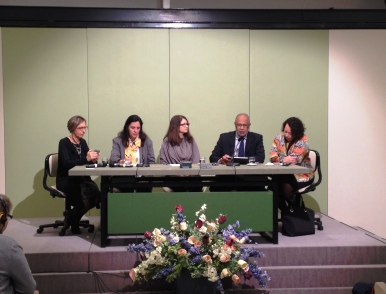
Dec 15, 2016 | Non categorizzato
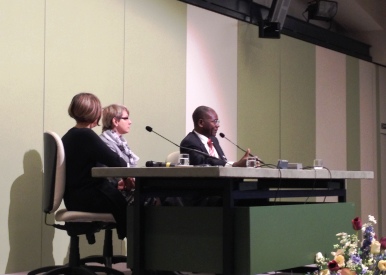 The objective of the convention was to «Review the various professions involved in the sector of justice – magistrates, lawyers, chancellors, university professors, prison staff, law enforcers – and discover the path to be pursued together, with the active participation of all the “actors” of the multifaceted relationships involved». The international congress promoted by Communion and Law (CeD) and New Humanity, was held last 26 and 27 November in Castel Gandolfo (Rome). The presence of a film director in a meeting on justice may have seemed to be quite unusual, but in his moving testimonial, Fernando Muraca succeeded in describing the experience of a prison staff in the Penal Institute for Minors of Catanzaro (Southern Italy). This was a documentary filmed entirely by the youths of the Institute, and the fruit of a commitment translated into a “cinema project” that transformed the young inmates not only into actors, but into people who have given a new meaning to their existence. Muraca is also the author and director of the film The land of Saints in which he faces the reality of the mafia’s organized crime. During the two days of intense dialogue among the various operators working in the field of justice, the discourse oftentimes stressed the concept of human dignity, and the intrinsic and inestimable value of every human being, in the conviction that also legal relationships can be lived in the spirit of fraternity and the quest for true justice.
The objective of the convention was to «Review the various professions involved in the sector of justice – magistrates, lawyers, chancellors, university professors, prison staff, law enforcers – and discover the path to be pursued together, with the active participation of all the “actors” of the multifaceted relationships involved». The international congress promoted by Communion and Law (CeD) and New Humanity, was held last 26 and 27 November in Castel Gandolfo (Rome). The presence of a film director in a meeting on justice may have seemed to be quite unusual, but in his moving testimonial, Fernando Muraca succeeded in describing the experience of a prison staff in the Penal Institute for Minors of Catanzaro (Southern Italy). This was a documentary filmed entirely by the youths of the Institute, and the fruit of a commitment translated into a “cinema project” that transformed the young inmates not only into actors, but into people who have given a new meaning to their existence. Muraca is also the author and director of the film The land of Saints in which he faces the reality of the mafia’s organized crime. During the two days of intense dialogue among the various operators working in the field of justice, the discourse oftentimes stressed the concept of human dignity, and the intrinsic and inestimable value of every human being, in the conviction that also legal relationships can be lived in the spirit of fraternity and the quest for true justice.  The rich and varied programme also deepened particularly current themes such as the protection of unaccompanied minors and political asylum applicants, relationship with jailees and protection of the victims. Dr. David Shaeed (magistrate in Indianapolis), Atty. Alba Doto (Boston), Atty. Endy Moraes (Fordham University, New York), and Dr. Luciane Barzotto Cardoso (magistrate of the Federal Court of Porto Alegre, Brazil), reviewed the current laws in various parts of the world, and elaborated the methods of pursuing the research and study paths initiated for some years now, also enriched by concrete implementations. Among the speeches was the video presentation of Maria Voce, Focolare President, the first woman lawyer of the Court of Cosenza (Italy), entitled Justice and the common good in the perspective of universal brotherhood. In a passage of her speech, Maria Voce explained: «Today, in the light of this “piecemeal World War III,” the tragic destructions, wiping out of every right and respect for peoples living in war territories, and closure of the borders to migrants, fraternity is the only answer, and the commitment we are called to give is to build it even with small actions, infinitesimal drops that may, however, enlighten the night.». The working sessions according to professional sectors evidenced the need to facilitate a confrontation within the various professions without losing sight of the entirety, to develop a dialogue among the operators and share know-how and experiences of the various activities developed in the field of Law. A significant note was the presence of the youth and the deep involvement of students. One of the most heartfelt testimonies was that of Roberto (former convict), and Alfonso, who has been working for some years in the Rebibbia Jail (Rome) to give a concrete hand to the families of the prisoners. Roberto did not hide his emotions in presenting his experience before such a qualified public, and ended by requesting the civil community to facilitate and promote the difficult employment and social reinsertion of ex-convicts. The next event will be for the youth in the Summer School 2017. Patrizia Mazzola
The rich and varied programme also deepened particularly current themes such as the protection of unaccompanied minors and political asylum applicants, relationship with jailees and protection of the victims. Dr. David Shaeed (magistrate in Indianapolis), Atty. Alba Doto (Boston), Atty. Endy Moraes (Fordham University, New York), and Dr. Luciane Barzotto Cardoso (magistrate of the Federal Court of Porto Alegre, Brazil), reviewed the current laws in various parts of the world, and elaborated the methods of pursuing the research and study paths initiated for some years now, also enriched by concrete implementations. Among the speeches was the video presentation of Maria Voce, Focolare President, the first woman lawyer of the Court of Cosenza (Italy), entitled Justice and the common good in the perspective of universal brotherhood. In a passage of her speech, Maria Voce explained: «Today, in the light of this “piecemeal World War III,” the tragic destructions, wiping out of every right and respect for peoples living in war territories, and closure of the borders to migrants, fraternity is the only answer, and the commitment we are called to give is to build it even with small actions, infinitesimal drops that may, however, enlighten the night.». The working sessions according to professional sectors evidenced the need to facilitate a confrontation within the various professions without losing sight of the entirety, to develop a dialogue among the operators and share know-how and experiences of the various activities developed in the field of Law. A significant note was the presence of the youth and the deep involvement of students. One of the most heartfelt testimonies was that of Roberto (former convict), and Alfonso, who has been working for some years in the Rebibbia Jail (Rome) to give a concrete hand to the families of the prisoners. Roberto did not hide his emotions in presenting his experience before such a qualified public, and ended by requesting the civil community to facilitate and promote the difficult employment and social reinsertion of ex-convicts. The next event will be for the youth in the Summer School 2017. Patrizia Mazzola









 Kelly, the second of Carmen and Mynor’s four children, is studying law to follow in her father’s footsteps. «There are only a few of us in the faculty – she affirmed – but we help each other. Only two of us are gen but we always try to have Jesus in our midst and with everyone». Kelly admires the coherent life of her parents: «When they invited people to the Mariapolis, they spoke about experiences I know, and which were all true. In our home, the Word of Life is the reference for every situation. And so, when there is a problem we read it in order to put it into practice.» Respect for the elderly is one of the riches of the Kaqchikel. In their presence, a gesture of reverence is shown before speaking. Motherhood and the gift of children are considered a benediction of God and are foremost in value compared to all considerations. «For me, the Movement – again Carmen says – is a grace of God that welcomes us, adults and children, and likewise the various cultures and languages. Here, they appreciate us, with our traditions and mentality.» In the culture of the Maya there is a strong bond with nature. «We invoke it, giving thanks to the heart of the heavens and the heart of the earth, and like St. Francis, we say: all are my brothers. Also
Kelly, the second of Carmen and Mynor’s four children, is studying law to follow in her father’s footsteps. «There are only a few of us in the faculty – she affirmed – but we help each other. Only two of us are gen but we always try to have Jesus in our midst and with everyone». Kelly admires the coherent life of her parents: «When they invited people to the Mariapolis, they spoke about experiences I know, and which were all true. In our home, the Word of Life is the reference for every situation. And so, when there is a problem we read it in order to put it into practice.» Respect for the elderly is one of the riches of the Kaqchikel. In their presence, a gesture of reverence is shown before speaking. Motherhood and the gift of children are considered a benediction of God and are foremost in value compared to all considerations. «For me, the Movement – again Carmen says – is a grace of God that welcomes us, adults and children, and likewise the various cultures and languages. Here, they appreciate us, with our traditions and mentality.» In the culture of the Maya there is a strong bond with nature. «We invoke it, giving thanks to the heart of the heavens and the heart of the earth, and like St. Francis, we say: all are my brothers. Also 
 “I was asked to present a report on the Christian witness in front of African tradition. It wasn’t easy for me, for two simple reasons: the first is that I am a Bangwa, the second is that I’m not only Christian, but also the bishop of Mamfe.” The speaker is Bishop Andrew Fuanya Nkea at a symposium on
“I was asked to present a report on the Christian witness in front of African tradition. It wasn’t easy for me, for two simple reasons: the first is that I am a Bangwa, the second is that I’m not only Christian, but also the bishop of Mamfe.” The speaker is Bishop Andrew Fuanya Nkea at a symposium on 



 From
From 
